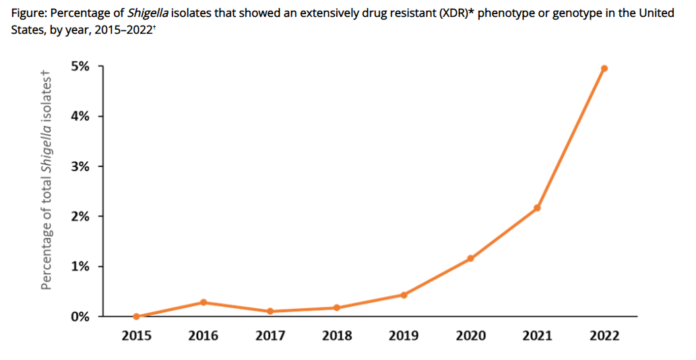
Staff Report
WASHINGTON, D.C. — The Centers for Disease Control and Prevention is warning clinicians and public health departments about a sharp rise in serious stomach infections caused by bacteria that are resistant to common antibiotics.
In a health advisory issued Friday, the CDC said the agency has been monitoring an increase in people infected with strains of Shigella bacteria that are highly resistant to available drugs.
Shigella infections, known as shigellosis, usually cause diarrhea that can be prolonged and bloody, as well as fever and abdominal cramps.
There are about 450,000 shigellosis infections every year, according to a Fox News report;
The CDC reports that 5% of all infections in 2022 were extensively drug-resistant, up from zero in 2015.
An infection is considered extensively drug-resistant when it doesn’t respond to antibiotics that are commonly used to treat it, such as azithromycin, ciprofloxacin, ceftriaxone, and others.




